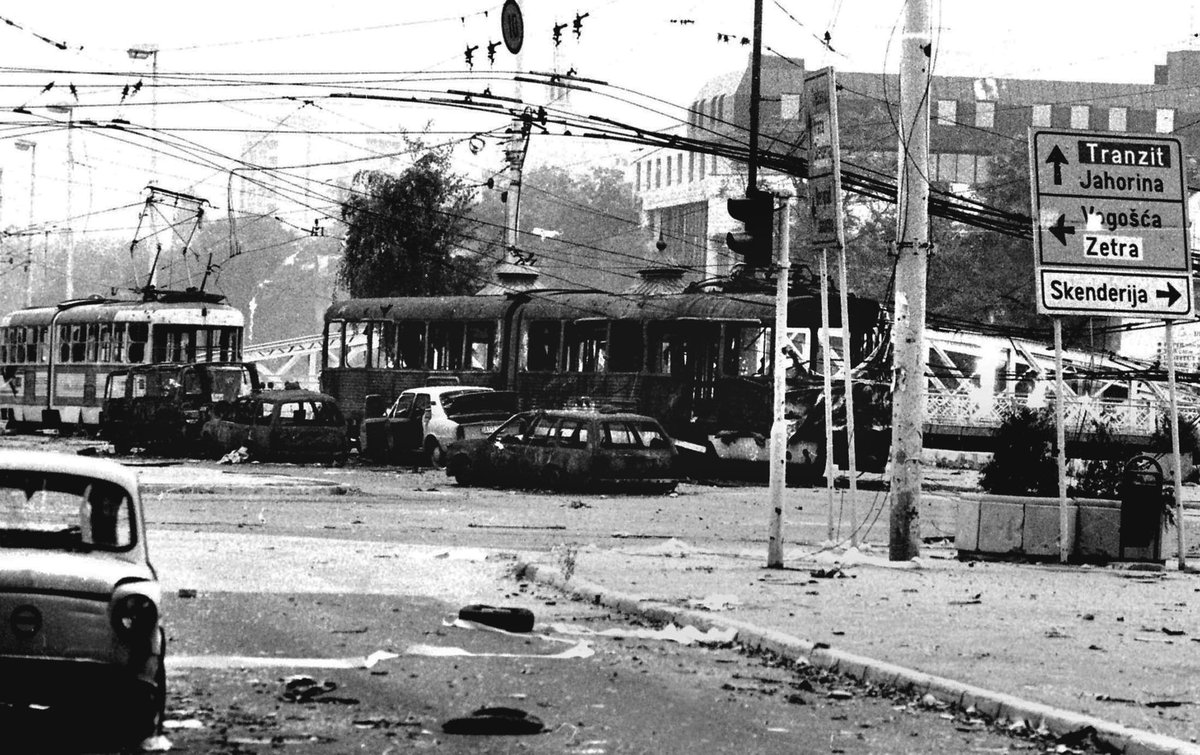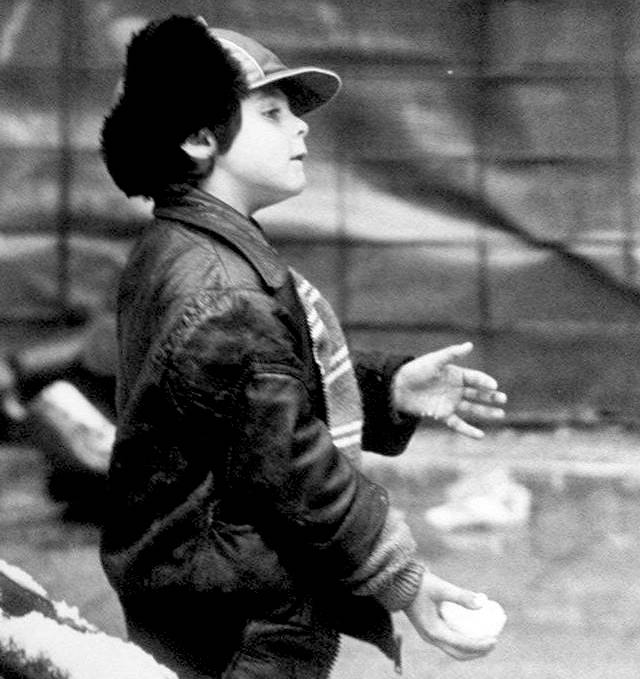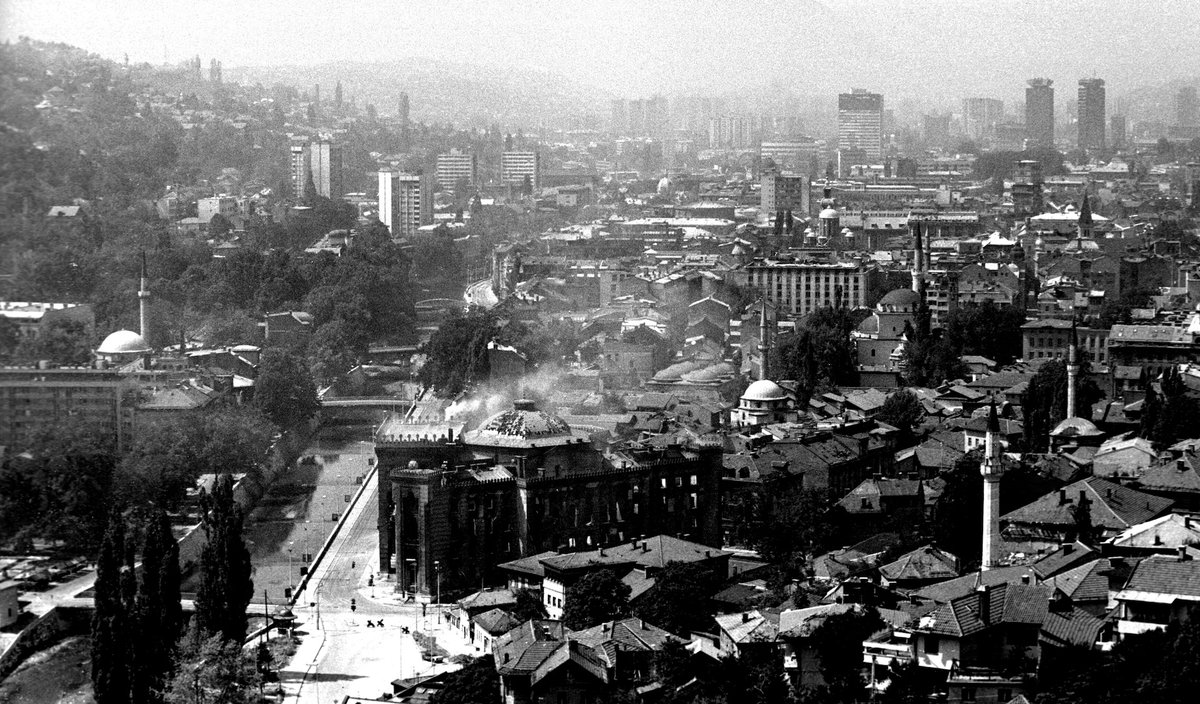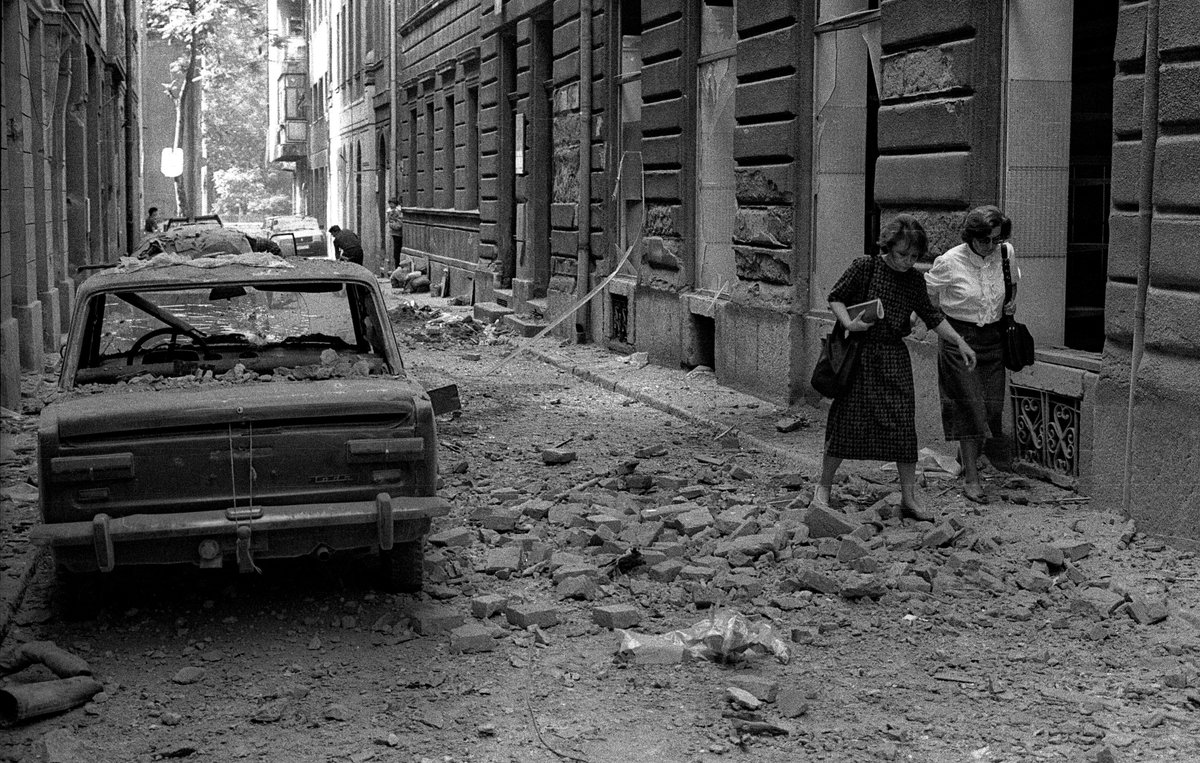
#OTD 29 May 1993, instead of asking for "world peace" as she was crowned, Inela Nogić unfolded a banner that read: "Don't let them kill us." When asked what she would do as Miss Besieged Sarajevo, she replied, "I have no plans, I could be dead tomorrow."
Photo©️Jerome Delay
Photo©️Jerome Delay

Nogić was born and raised in Sarajevo, a true daughter of the city. Inela was by all accounts a good student, but as a 16-year-old when the shells began raining down on Sarajevo everything sort of ground to a halt.
She had actually been interviewed by foreign media before the pageant, stating that continuing to look good was another form of resistance. No matter how many bombs fell, how many people were gunned down by sniper fire
or how many historical buildings crumbled under the weight of war, Inela Nogić was still going to look like a million bucks.
She wasn’t entirely enthused at the idea of taking part in a beauty pageant however and it took the insistence of her mother for her to take part in Miss Besieged Sarajevo 1993.
The 13 girls wore combat uniforms and carried guns in an attempt to lampoon the ridiculousness of war (or possibly tap into the fashion of the time), but the stark reality of the violence could be seen in the shrapnel scars that many competitors wore.
Inela Nogić was proclaimed the winner, but this wasn’t as important as showing the world that life was going to continue in Sarajevo.
Photo©️Patrick Robert
Photo©️Patrick Robert

The war may have put a stop to large swathes of normality, but Sarajevo’s cultural life continued apace. Poetry recitals, musicals, gigs, film screenings and all sorts went underground, taking place in basements to avoid sniper fire.
Whilst the majority of these were ignored by the international press, the inherent glamour of a Miss Besieged Sarajevo contest was too good to ignore.
The journalists present made sure to show the pictures to the world, and the international community woke up somewhat to the horrors of Sarajevo.
Bono and U2 have never met a humanitarian publicity possibility they didn’t like, and this was no different. The song ‘Miss Sarajevo’ was penned, and when the Irish pseudo-rockers became the first Western band to play in Sarajevo
#MIssSarajevo
#MIssSarajevo
following the war Nogić was flown in by the band to make an appearance. By this time she was living in the Netherlands, mother of two and married to a Dutch journalist she had met in Bosnia during the war.
Inela Nogić’s story isn’t unique, but it is important. Where many poets, bands and directors continued to create and perform in Sarajevo without the interest of the world,
Nogić and her 12 fellow competitors captured the imagination of the international press and showed that life would continue, regardless of how much death happened to be surrounding it.
Photo©️Paul Lowe
Photo©️Paul Lowe

"Mom made me take part in the contest," Nogić said, adding that she never expected anything from it. "It took me a long time to realize I became a symbol."
#MissSarajevo
#MissSarajevo
• • •
Missing some Tweet in this thread? You can try to
force a refresh










